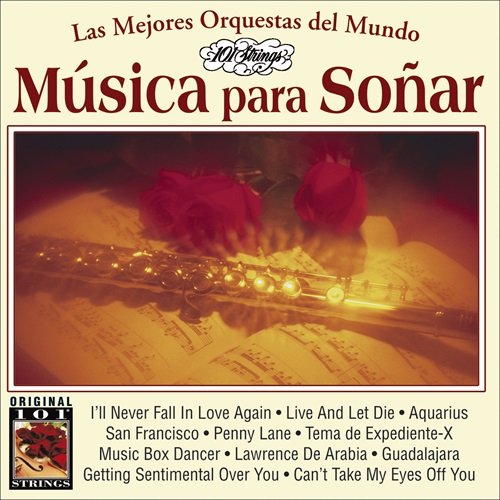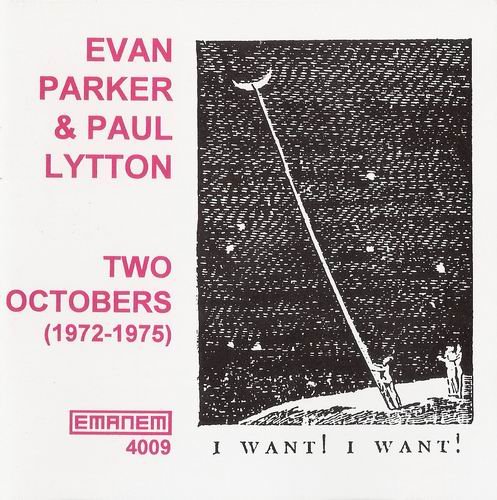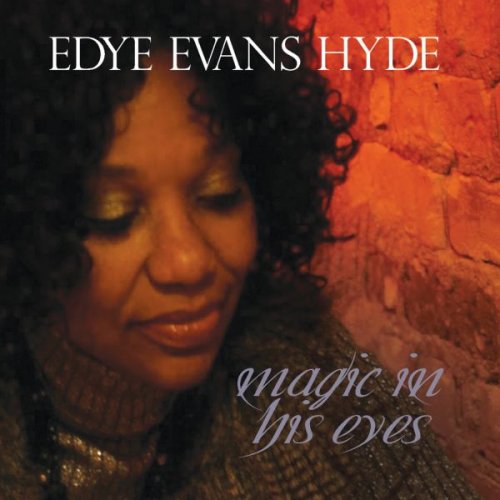Bradley Burgess - J. S. Bach: Orgelbüchlein, Bradley Burgess, organist (2024)

Artist: Bradley Burgess
Title: J. S. Bach: Orgelbüchlein, Bradley Burgess, organist
Year Of Release: 2024
Label: Raven
Genre: Classical
Quality: FLAC (tracks)
Total Time: 1:16:49
Total Size: 369 MB
WebSite: Album Preview
Tracklist:Title: J. S. Bach: Orgelbüchlein, Bradley Burgess, organist
Year Of Release: 2024
Label: Raven
Genre: Classical
Quality: FLAC (tracks)
Total Time: 1:16:49
Total Size: 369 MB
WebSite: Album Preview
1. Bradley Burgess – Nun Komm’ Der Heiden Heiland, BWV 599 (01:20)
2. Bradley Burgess – Gott, durch deine Güte, BWV 600 (01:03)
3. Bradley Burgess – Herr Christ, der einge Gottessohn, BWV 601 (01:28)
4. Bradley Burgess – Lob sei dem allmächtigen Gott, BWV 602 (00:54)
5. Bradley Burgess – Puer natus in Bethlehem, BWV 603 (01:06)
6. Bradley Burgess – Gelobet seist du, Jesu Christ, BWV 604 (01:14)
7. Bradley Burgess – Der Tag, der ist so freudenreich, BWV 605 (01:45)
8. Bradley Burgess – Vom Himmel hoch, da komm ich her, BWV 606 (00:40)
9. Bradley Burgess – Vom Himmel kam der Engel Schaar, BWV 607 (01:00)
10. Bradley Burgess – In dulci jubilo, BWV 608 (01:17)
11. Bradley Burgess – Lobt Gott, ihr Christen, allzugleich, BWV 609 (00:44)
12. Bradley Burgess – Jesu, meine Freude, BWV 610 (02:56)
13. Bradley Burgess – Christum wir sollen loben schon, BWV 611 (02:25)
14. Bradley Burgess – Wir Christenleut, BWV 612 (01:51)
15. Bradley Burgess – Helft mir Gottes Güte preisen, BWV 613 (01:10)
16. Bradley Burgess – Das alte Jahr vergangen ist, BWV 614 (03:06)
17. Bradley Burgess – In dir ist Freude, BWV 615 (02:40)
18. Bradley Burgess – Mit Fried und Freud ich fahr dahin, BWV 616 (02:05)
19. Bradley Burgess – Herr Gott, nun schleuß den Himmel auf, BWV 617 (02:21)
20. Bradley Burgess – O Lamm Gottes, unschuldig, BWV 618 (03:33)
21. Bradley Burgess – Christe, du Lamm Gottes, BWV 619 (00:54)
22. Bradley Burgess – Christus, der uns selig macht, BWV 620 (02:30)
23. Bradley Burgess – Da Jesus an dem Kreuze stund, BWV 621 (01:38)
24. Bradley Burgess – O Mensch, bewein dein Sünde groß, BWV 622 (05:47)
25. Bradley Burgess – Wir danken dir, Herr Jesu Christ, BWV 623 (00:57)
26. Bradley Burgess – Hilf Gott, daß mir’s gelinge, BWV 624 (01:15)
27. Bradley Burgess – Christ lag in Todes Banden, BWV 625 (01:21)
28. Bradley Burgess – Jesus Christus, unser Heiland, BWV 626 (00:40)
29. Bradley Burgess – Christ ist erstanden, BWV 627 (04:04)
30. Bradley Burgess – Erstanden ist der heilge Christ, BWV 628 (00:45)
31. Bradley Burgess – Erschienen ist der herrliche Tag, BWV 629 (00:55)
32. Bradley Burgess – Heut triumphieret Gottes Sohn, BWV 630 (01:19)
33. Bradley Burgess – Komm, Gott Schöpfer, heiliger Geist, BWV 631 (00:46)
34. Bradley Burgess – Herr Jesu Christ, dich zu uns wend, BWV 632 (01:07)
35. Bradley Burgess – Liebster Jesu, wir sind hier, BWV 633 & 634 (02:31)
36. Bradley Burgess – Dies sind die heil’gen zehn Gebot’, BWV 635 (01:13)
37. Bradley Burgess – Vater unser im Himmelreich, BWV 636 (01:30)
38. Bradley Burgess – Durch Adams Fall ist ganz verderbt, BWV 637 (02:00)
39. Bradley Burgess – Es ist das Heil uns kommen her, BWV 638 (00:58)
40. Bradley Burgess – Ich ruf zu dir, Herr Jesu Christ, BWV 639 (02:33)
41. Bradley Burgess – In dich hab’ ich gehoffet, Herr, BWV 640 (00:46)
42. Bradley Burgess – Wenn wir in höchsten Nöthen sein, BWV 641 (02:37)
43. Bradley Burgess – Wer nur den lieben Gott lässt walten, BWV 642 (01:31)
44. Bradley Burgess – Alle Menschen müssen sterben, BWV 643 (01:30)
45. Bradley Burgess – Ach wie nichtig, ach wie flüchtig, BWV 644 (00:41)
The Orgelbüchlein (Little Organ Book) of Johann Sebastian Bach (1685–1750) is a collection of 46 chorale preludes,1 long regarded as a pillar of organ literature. While the title page seems to indicate a decidedly pedagogical motivation for the collection, there is plausible evidence that the title page was written after most of the music was composed.2 It is very likely that Bach—ever the pragmatist—composed the collection to fulfill both a didactic and a practical need: a Lutheran church musician, he probably used these pieces in his own service playing, as hymn introductions, interludes, or even accompaniments.3 Bach put only 46 pieces to paper, however we know that he had originally intended to set a total of 164 hymns: most of the manuscript consists of pages with chorale titles at the top, but that otherwise are blank. The hymns chosen fall into two broad categories: (1) de tempore (“of the time”), hymns belonging to a particular season of the church year (Advent through Pentecost), and (2) omne tempore (“all times”), more general hymns.
The Orgelbüchlein is sometimes overshadowed by Bach’s two bigger chorale collections: the Great Eighteen or Leipzig Chorales, and Clavier-Übung III. This is a pity, for within the pages of the Orgelbüchlein live forty-five4 unique and fully formed, rich musical worlds. The level of musical conciseness Bach achieves is extraordinary: a complete musico-theological statement is made often within the span of ten to fifteen measures — sometimes fewer than ten (e.g. BWV 602). It is easy to imagine that Schubert might have drawn inspiration from The Orgelbüchlein while penning some of his Lieder, which are similarly brief and also employ vivid text painting at times. Alan Walker, the great biographer of Liszt, noted that, “If [Liszt] had composed nothing else, he would have to be regarded as a major composer on the strength of [the Piano Sonata] alone.”5 It is my belief that the same could be said of Bach and the Orgelbüchlein.
A handful of the chorales in the present collection have enjoyed great popularity and are played often — rightly so. These include In dir ist Freude, In dulci jubilo, Ich ruf zu dir and O Mensch bewein. However, these pieces do not represent musically exemplary outliers in an otherwise mediocre collection; each of the 46 are masterpieces, with Bach’s compositional prowess on full display to those who take the time to notice. He is sometimes kind enough to inform the performer when he is crafting a canon by indicating so in the title, but it is not always apparent to the casual listener what contrapuntal sorcery Bach is able to perform; the intellectual achievements are never won at the expense of the music. Simply stated, these 46 pieces are nothing short of genius.
The Orgelbüchlein is sometimes overshadowed by Bach’s two bigger chorale collections: the Great Eighteen or Leipzig Chorales, and Clavier-Übung III. This is a pity, for within the pages of the Orgelbüchlein live forty-five4 unique and fully formed, rich musical worlds. The level of musical conciseness Bach achieves is extraordinary: a complete musico-theological statement is made often within the span of ten to fifteen measures — sometimes fewer than ten (e.g. BWV 602). It is easy to imagine that Schubert might have drawn inspiration from The Orgelbüchlein while penning some of his Lieder, which are similarly brief and also employ vivid text painting at times. Alan Walker, the great biographer of Liszt, noted that, “If [Liszt] had composed nothing else, he would have to be regarded as a major composer on the strength of [the Piano Sonata] alone.”5 It is my belief that the same could be said of Bach and the Orgelbüchlein.
A handful of the chorales in the present collection have enjoyed great popularity and are played often — rightly so. These include In dir ist Freude, In dulci jubilo, Ich ruf zu dir and O Mensch bewein. However, these pieces do not represent musically exemplary outliers in an otherwise mediocre collection; each of the 46 are masterpieces, with Bach’s compositional prowess on full display to those who take the time to notice. He is sometimes kind enough to inform the performer when he is crafting a canon by indicating so in the title, but it is not always apparent to the casual listener what contrapuntal sorcery Bach is able to perform; the intellectual achievements are never won at the expense of the music. Simply stated, these 46 pieces are nothing short of genius.



![The Seven Ups - Fight Night EP (2024) [Hi-Res] The Seven Ups - Fight Night EP (2024) [Hi-Res]](https://img.israbox.com/img/2026-02/15/1htr575jom9ce8gknmn3zynd6.jpg)
![Ali Shaheed Muhammad, Adrian Younge - Cross: Season 2 (Prime Video Original Series Soundtrack) (2026) [Hi-Res] Ali Shaheed Muhammad, Adrian Younge - Cross: Season 2 (Prime Video Original Series Soundtrack) (2026) [Hi-Res]](https://img.israbox.com/img/2026-02/18/c61izyjkl1wnuz91hzkfnam7x.jpg)



